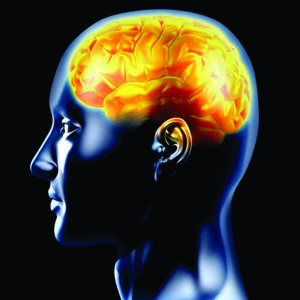By Sheila Pinkston
 Epilepsy is a neurological condition which affects the nervous system. Epilepsy is also known as a seizure disorder. More people live with epilepsy than with autism spectrum disorders, Parkinson’s disease, multiple sclerosis and cerebral palsy – combned. Below are some interesting facts about epilepsy.
Epilepsy is a neurological condition which affects the nervous system. Epilepsy is also known as a seizure disorder. More people live with epilepsy than with autism spectrum disorders, Parkinson’s disease, multiple sclerosis and cerebral palsy – combned. Below are some interesting facts about epilepsy.
1. No one can swallow his or her tongue during a seizure. It’s physically impossible.
2. You should never force something into the mouth of someone having a seizure. Forcing something into the mouth of someone having a seizure can chip teeth, cut gums, or even break someone’s jaw. The correct first aid is simple: gently roll the person on one side, support their head, protect from injury, and make sure their breathing is okay.
3. Don’t restrain someone having a seizure. Most seizures end in seconds or a few minutes and will end on their own. You can protect the person from injury by following simple first-aid guidelines.
4. Epilepsy is not contagious. You simply can’t catch epilepsy from another person.
5. Anyone can develop epilepsy. Seizures start for the first time in people over age 65 almost as often as they do in children. Seizures in the elderly are often the after effect of other health problems like stroke and heart disease.
6. Most people with epilepsy can do the same things that people without epilepsy can do. However, some people with frequent seizures may not be able to work or drive or may have problems in other parts of their life.
7. People with epilepsy can handle jobs with responsibility and stress. People with seizure disorders are found in all walks of life. They may work in business, government, the arts, and all sorts of professions. If stress bothers their seizures, they may need to learn ways to manage stress at work. But everyone needs to learn how to cope with stress! There may be some types of jobs that people with epilepsy can’t do because of possible safety problems. Otherwise, having epilepsy should not effect the type of job or responsibility that a person has.
8. Even with today’s medication, epilepsy cannot be cured. Epilepsy is a chronic medical problem that for many people can be successfully treated. Unfortunately, treatment doesn’t work for everyone. At least one million people in the United States have uncontrolled epilepsy. There is still an urgent need for more research, better treatments, and a cure.
9. Epilepsy is not rare. There are more than twice as many people with epilepsy in the U.S. as the number of people with cerebral palsy (500,000), muscular dystrophy (250,000), multiple sclerosis (350,000), and cystic fibrosis (30,000) combined. Epilepsy is a single condition or may be seen with other conditions affecting the brain, such as cerebral palsy, intellectual disability, autism, Alzheimer’s, and traumatic brain injury.
10. You can die from epilepsy. While death in epilepsy doesn’t happen frequently, epilepsy is a very serious condition, and individuals do die from seizures. The most common cause of death is SUDEP or Sudden Unexpected Death in Epilepsy. While there is a lot we still don’t know about SUDEP, experts estimate that one out of every 1,000 people with epilepsy die from SUDEP each year. People can also die from prolonged seizures (status epilepticus). About 22,000 to 42,000 deaths in the U.S. each year occur from these seizure emergencies.
11. What happens in a seizure may look different from one person to another. However, seizures are usually stereotypic, which means the same things or behaviors tend to occur in a person each time they have a seizure. The seizure behavior may be inappropriate for the time and place, but it is unlikely to cause harm to anyone.
12. People with epilepsy are usually not physically limited in what they can do. During and after a seizure, a person may have trouble moving or doing their usual activity. Some people may have trouble with physical abilities due to other neurological problems. Aside from these problems, a person who is not having a seizure is usually not limited in what they can do physically.
Source: epilepsy.com
Check Also
Recurrent UTIs: Addressing the Risk of Antibiotic Resistance
Urinary tract infections (UTIs) are common bacterial infections that affect millions of individuals worldwide each …
 Central Florida Health and Wellness Magazine Health and Wellness Articles of the Villages
Central Florida Health and Wellness Magazine Health and Wellness Articles of the Villages



